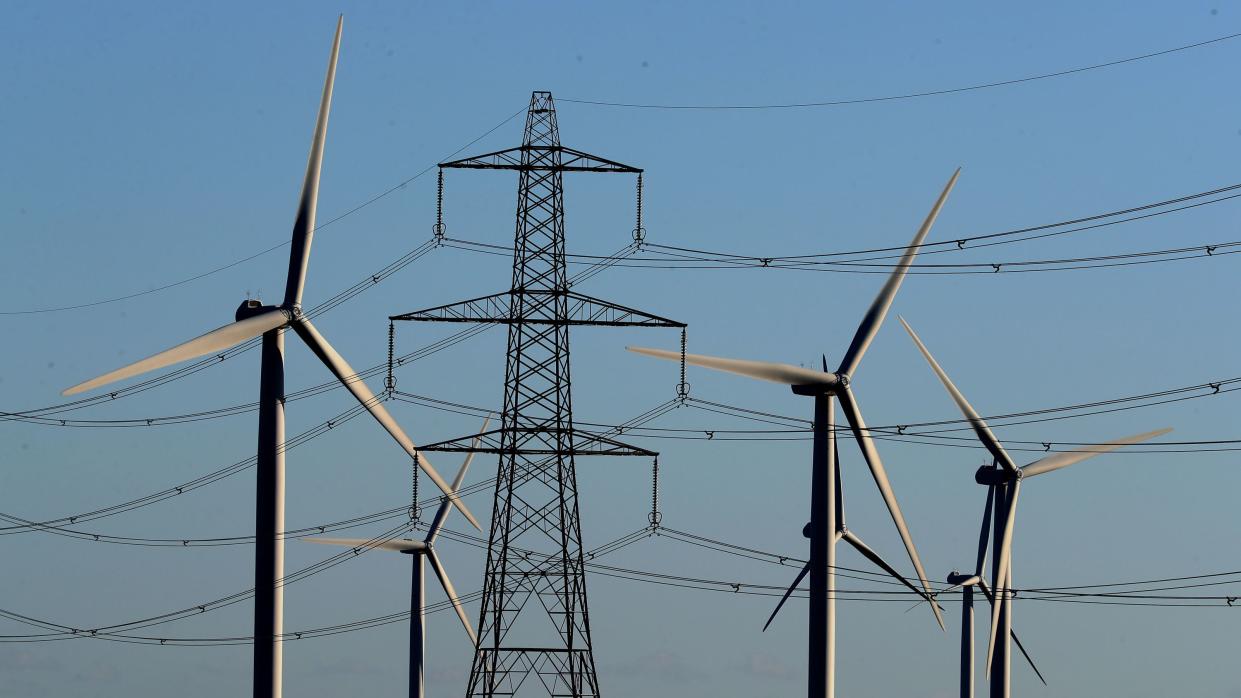Energy tsar: We will not carpet UK with windfarms and pylons for clean power

The Government will not be “carpeting the countryside” with windfarms and pylons in its push towards clean power, the official leading the project said.
But Chris Stark, “head of mission control” for the bid to deliver clean power by 2030, said the Government had to be honest about the need for new development to meet the goal.
Mr Stark, who was previously chief executive of the independent advisory Climate Change Committee, also said “undergrounding” power lines – as an alternative to overhead lines and pylons – was possible but would cost too much and take too long.
The clean energy tsar, whose “Mission Control” sits within the Department for Energy Security and Net Zero, also said there was a need to tackle delays and barriers in the planning system to roll out the infrastructure, but insisted it was important to let people have their say.
His comments come as the new Government’s plans to transform the power system to renewables and low carbon generation have caused concerns in some areas about the impact on landscape and communities.
Energy Secretary Ed Miliband has already lifted the de facto ban on onshore wind in England and consented a series of large scale solar farms.
Meanwhile, communities in areas such as East Anglia’s Waveney Valley have criticised local plans for infrastructure such as pylons bringing new offshore wind power into the grid.
The Government has commissioned the new National Electricity System Operator (Neso) to report back in the autumn with a blueprint for the 2030 clean power system and pathways to it.
While Mr Stark acknowledged the push for clean power by 2030 was hugely challenging and that as CCC chief executive he had thought it was a “Herculean” task, he said there was already enough in the pipeline of energy projects in the country to meet the goal.
But that would require removing delays and barriers to those projects, and actively planning for the kind of system needed for 2030, and beyond as the UK moves towards electric vehicles and heating.
And he said: “If we want to deliver that plan at the scale and the pace required, we cannot hide from the fact it will require new development.”
He said Mr Miliband and Prime Minister Sir Keir Starmer had been clear on the need for the development.
Development needed to be “in tune with nature”, and people should not be ignored in the process, Mr Stark added, saying: “We also have to let them have their say.”
While he said he wanted to see some “special treatment” for the projects needed to get to the 2030 goal in the planning system, he acknowledged the Government could not just step around public consent.
But he said: “We can remove this spectre that we’re going to somehow carpet the countryside with windfarms and pylons. We’re not going to do that.
“A clear plan that you can look at on a map helps us level with the affected communities, and work constructively to minimise the impact on those communities, also offer those communities a clearer share of the benefits in that transition.”
He added: “No doubt there will be communities who are affected by this and we have to be honest about that.”
On the potential for undergrounding cables, which critics of pylons through the countryside have called for, he said: “We could underground it, but this Government is very clear that is going to cost too much.
“There will be some parts of this that we need to look again at, but it is not my intention that we will push for a plan to underground all that cable.
“Apart from anything else it would take too long, and the benefits, frankly, are I think overstated.”
Speaking at a Green Alliance event in London, Mr Stark also said there would still be gas on the system with the clean power by 2030 mission – which is one of Labour’s key missions for Government – as a reserve to prevent blackouts.
And he said the shift to clean power would spur new industries and supply chains in the UK, attract investment and lower bills.
“It is the clearest way that we can push forward to reduce our import dependence on these chaotically priced fossil fuels, priced in global markets, of course, and liable to price spikes.
“That is what has brought untold misery to the people and businesses of this country over the last few years. This is our way through that,” he said.


